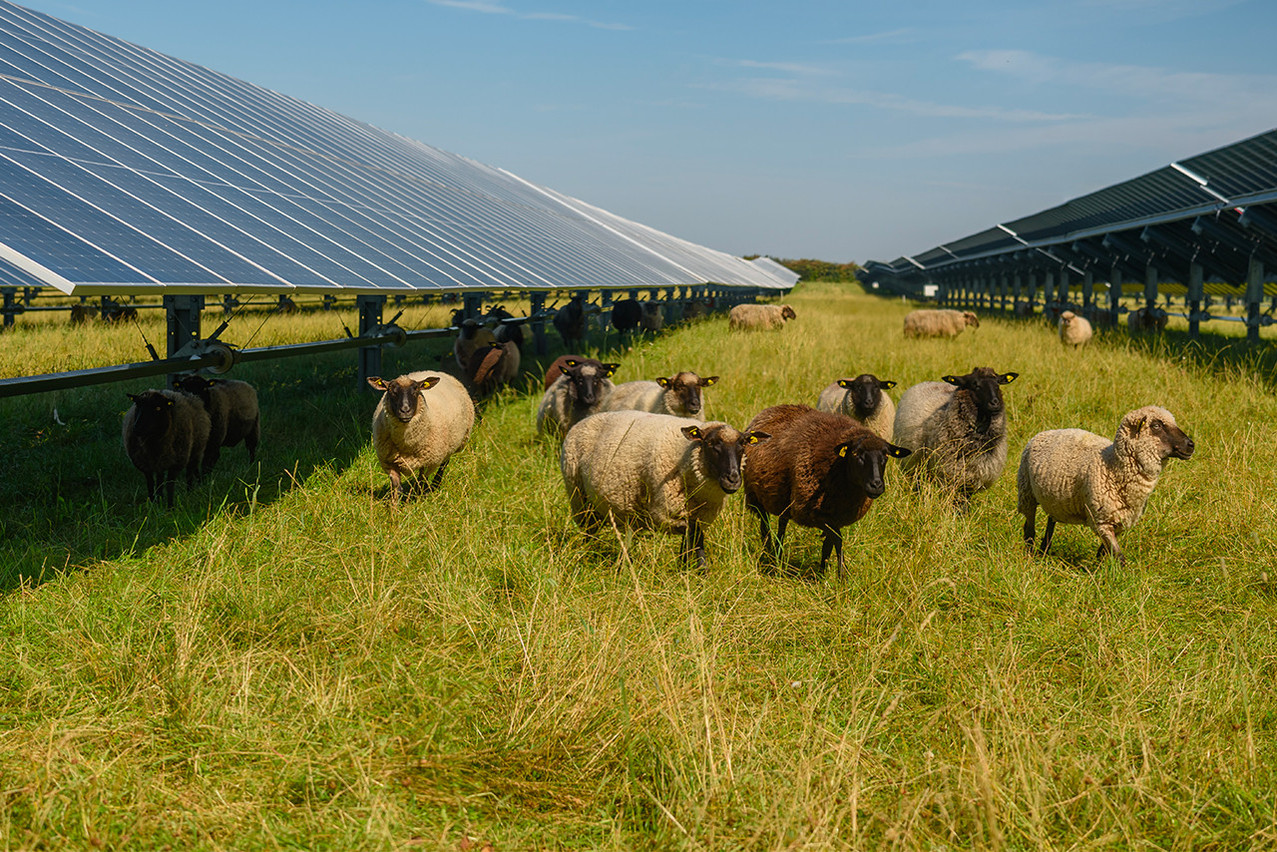For the year 2024, the Eurosolar association, which has just published its activity report, reports an “increase in the number of photovoltaic installations by private individuals.” This is good news for the association, which is working to promote the idea that “the solar age will provide humanity with an energy supply that is compatible with nature, socially equitable and sustainable.”
According to data published on the Energieauer.lu platform, 2024 saw an expansion in solar energy, with additional capacity of 98.70MW in 2024, bringing total capacity to date to 492.70MW, still a long way short of the target of 1,236MW by 2030 in the grand duchy’s National energy and climate plan (PNEC). Still according to the platform's data, in 2024, out of 1,278GWH of electricity produced and fed into the grid, 295GWH came from photovoltaics, the second most important renewable source after wind power (465GWH).
In the activity report, Eurosolar Luxembourg president notes that “it is not enough to set targets; it is imperative to achieve them,” and that “change is easier said than done.”
But change seems well underway. “The country has already made significant progress on the road to climate neutrality, with notable emissions reductions that can serve as a basis for more ambitious measures,” says the association. Emissions from the energy sector have been reduced by 32.89%, although the transport sector has seen its emissions increase by 60.5% since 1990.
Among the notable advances of 2024, Eurosolar points to the launch of the first pilot project in agrivoltaics in October 2024 in Kehlen, a practice that combines the installation of photovoltaic panels and agricultural activities on the same plot of land, and which the association hopes to help develop further in the country. In Luxembourg, agrivoltaics has a number of advantages, not least maximising the use of the country’s limited agricultural land. The solar panels installed can sometimes provide natural protection for crops and “offer natural protection against extreme weather conditions,” says Eurosolar.
Advice for architects and craftsmen
The association is also active in the architecture and construction sector, and in 2024 published a guide to the architectural integration of photovoltaic solar panels in collaboration with the Ordre des Architectes et Ingénieurs-Conseils, the Chambre des Métiers, the Fédération des Artisans, the Klima-Agence, Greenpeace, the Service des Sites et Monuments Nationaux and the Administration des Bâtiments Publics, as a way of providing an overview of the various possibilities available in the country.
In 2024, the association also pursued its commitment through strategic cooperation. It is continuing the work begun under the agreement with the government to monitor the impact of renewable energy supplies. It prepares and formulates opinions on regulations, and provides information and raises awareness among various stakeholders. It also collaborates with various players such as the Klima-Agence, the H2 Taskforce and the Centre for Ecological Learning Luxembourg, and is involved in the Smartcore North-West Europe project aimed at developing energy communities across the region.
Eurosolar’s ambitions for the future remain unchanged: to achieve a CO2-free society that promotes the transition from fossil fuels to renewable energies, in particular solar energy, “to ensure a sustainable and viable energy supply for the future,” says the press release.
This article was originally published in .
